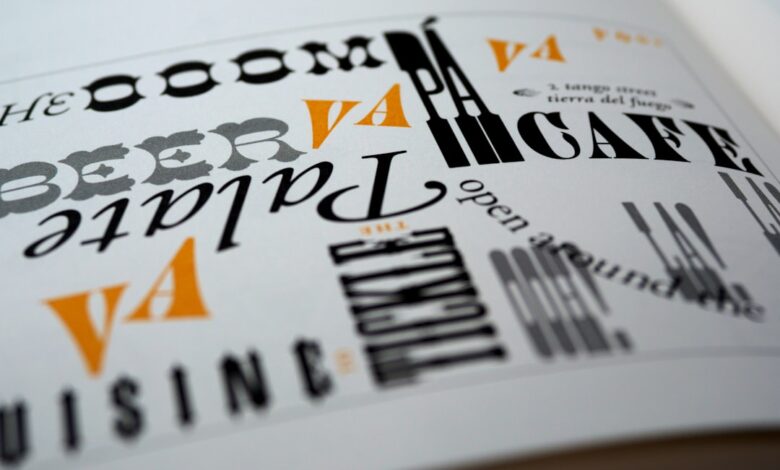Best Free Canva Fonts

Hey there, design friend! Finding the perfect font can feel like searching for a needle in a haystack, especially when you’re trying to create eye-catching designs on Canva without spending a dime. Don’t worry, I’m here to help you navigate the amazing world of free Canva fonts and pick out some real gems that will make your projects shine.
Why Font Choice Matters in Canva
Think of fonts as the voice of your design. A playful font can make a birthday invitation feel fun and exciting, while a professional font can add credibility to a business presentation. Choosing the right font isn’t just about aesthetics; it’s about communicating your message effectively and grabbing your audience’s attention. Canva makes it super easy to play around and find the perfect fit. A great font can instantly elevate your design from “meh” to “wow!”.
But with so many fonts to choose from within Canva, it can feel overwhelming, right? That’s why I’ve put together this list of some of the best free Canva fonts that are versatile, readable, and ready to take your designs to the next level. Let’s dive in!
Top Free Canva Fonts for All Your Design Needs
Alright, let’s get to the good stuff! Here are some fantastic free fonts available right in Canva that I personally love and recommend. I’ve broken them down into categories to make it easier to find what you’re looking for.
Clean & Modern Fonts
These fonts are perfect for creating a sleek and professional look. They’re easy to read and work well for websites, presentations, and branding materials.
Montserrat: This is a super popular sans-serif font that’s incredibly versatile. It’s clean, modern, and comes in a bunch of different weights, making it perfect for headings and body text.
Open Sans: Another excellent sans-serif choice, Open Sans is known for its readability, even at smaller sizes. It’s a great option for body text and longer paragraphs.
Lato: Lato is a sleek and modern sans-serif font with slightly rounded corners, giving it a warm and friendly feel. It works well for both headings and body text.
Raleway: If you are looking for a modern and classy font, Raleway is your best bet. With its unique letter structure, it makes headings stand out in a beautiful way.
Elegant & Stylish Fonts
These fonts add a touch of sophistication and class to your designs. They’re great for invitations, logos, and anything that needs a bit of elegance.
Playfair Display: A beautiful serif font that’s perfect for headlines and titles. Its high contrast and elegant curves make it stand out.
Lora: Lora is a well-balanced serif font with roots in calligraphy. It’s readable and has a contemporary feel, making it great for body text and headlines.
Cormorant Garamond: This is a classic and sophisticated serif font that exudes elegance. It’s ideal for formal invitations, logos, and anything that needs a touch of refinement.
Fun & Playful Fonts
Need to add some personality and fun to your designs? These fonts are perfect for kids’ projects, social media graphics, and anything that needs a lighthearted touch.
Luckiest Guy: This bold, hand-drawn font is super fun and playful. It’s perfect for headlines and titles that need to grab attention.
Permanent Marker: As the name suggests, this font looks like it was written with a permanent marker. It’s great for adding a personal and quirky touch to your designs.
Bangers: A comic-inspired font that’s bold and eye-catching. It’s perfect for posters, flyers, and anything that needs a bit of punch.
Bold & Impactful Fonts
These fonts are designed to make a statement. They’re perfect for headlines, posters, and anything that needs to grab attention.
Oswald: A condensed sans-serif font that’s bold and impactful. It’s great for headlines and titles that need to stand out.
Bebas Neue: Another popular sans-serif font, Bebas Neue is known for its tall and narrow characters. It’s perfect for headlines and posters.
Archivo Black: This font is a heavy, monolinear sans-serif that demands attention. It’s ideal for headlines and titles that need to make a strong statement.
Tips for Choosing the Right Font
Okay, so now you know some awesome free Canva fonts. But how do you choose the right one for your project? Here are a few tips to keep in mind:
Consider your brand: Your font should reflect your brand’s personality and style. Are you going for a professional look? A playful vibe? Choose fonts that align with your brand identity.
Think about your audience: Who are you trying to reach? Choose fonts that are appropriate for your target audience. A font that appeals to teenagers might not be the best choice for a business presentation.
Prioritize readability: No matter how beautiful a font is, it’s useless if people can’t read it. Make sure your font is clear and legible, especially for body text.
Use font pairings: Combining different fonts can add visual interest to your designs. A good rule of thumb is to pair a serif font with a sans-serif font. Canva has some pre-made font pairings that you can use as inspiration.
Don’t be afraid to experiment: The best way to find the perfect font is to try out different options and see what works best. Canva makes it easy to experiment with different fonts and styles.
Font Pairing Like a Pro
Font pairing is the art of combining two or more fonts in a way that creates a visually appealing and harmonious design. Here are a few killer combos using the free Canva fonts we’ve discussed:
- Montserrat & Lora: The clean lines of Montserrat paired with the elegant curves of Lora create a balanced and sophisticated look.
- Open Sans & Playfair Display: The readability of Open Sans combined with the stylishness of Playfair Display makes for a classic and timeless pairing.
- Lato & Raleway: These fonts work great because of how balanced they are. Lato is great for readability in paragraphs and Raleway, with its modern and classy style can be used in the headings.
Frequently Asked Questions
Are all Canva fonts free to use?
No, not all Canva fonts are free. Canva offers both free and premium fonts. The fonts listed in this article are all free to use within Canva, but make sure to double-check the licensing terms if you plan to use them outside of Canva.
Can I upload my own fonts to Canva?
Yes, you can upload your own fonts to Canva if you have a Canva Pro account. This gives you even more flexibility and allows you to use your favorite fonts in your designs.
How do I find free fonts in Canva?
When you’re in the Canva editor, click on the text box and then click on the font dropdown menu. You can filter by “Free” to see all the free fonts available.
Are free Canva fonts good enough for professional use?
Absolutely! The free Canva fonts I’ve listed are high-quality and versatile enough for a wide range of professional design projects. You don’t need to spend money to create stunning designs in Canva.
Final Thoughts
Choosing the right font is a crucial part of the design process, and with Canva’s extensive library of free fonts, you have plenty of options to create stunning visuals without breaking the bank. Remember to consider your brand, audience, and the overall message you’re trying to convey when selecting your fonts. Don’t be afraid to experiment and have fun! Happy designing!



